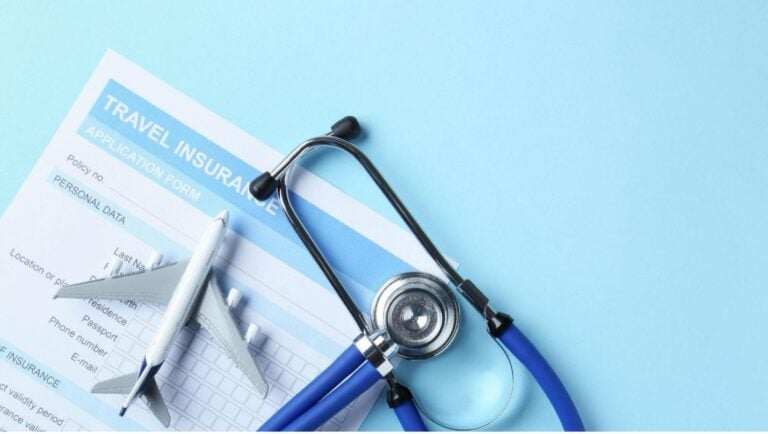A medical emergency away from home can be expensive and disruptive in ways that travel planning rarely anticipates. Hospital bills, emergency transfers and complex paperwork create stress at a moment when quick, reliable help is most needed.
Choosing a travel health insurance policy with the right benefits reduces financial exposure and streamlines access to care during a crisis.
This blog outlines the key medical benefits to prioritise when comparing travel health insurance plans and explains why each one is important.
Extensive Medical Insurance Coverage
Any policy is based on inpatient and outpatient benefits. Check the maximum insured limit to see if it is compatible with the cost of health at your destination.
Hospital room charges, surgeon and physician charges, intensive care, diagnostic tests and medicines prescribed should be listed on the coverage. Having a high limit is most important when travelling to countries where care is expensive.
Emergency Medical Evacuation and Repatriation
Air-ambulance or special ground transportation is extremely costly. Policies should indicate when evacuation can be, the terms under which it should be approved and how much can be paid.
Another critical provision that should be clear is the repatriation of remains. A powerful evacuation cover is essential in cases of remote travel or locations with limited facilities.
Cashless Treatment and Hospital Network
Without a cash system, there will be no massive initial payments. Ensure that the insurer has an international cashless network and knows how to utilise it. Details of the preferred provider lists, pre-authorisation, and direct-billing protocols minimise uncertainty and hasten the treatment process in situations where time is of the essence.
Pre-existing and Chronic Conditions
Pre-existing ailments are treated differently. Specific travel health insurance plans either exclude them entirely, or others cover them, but conditionally, post screening or with an additional premium.
The definition and disclosure requirements should be analysed to prevent the refusal of claims. Another thing to look into is whether chronic illness follow-ups are provided when travelling.
Outpatient Medical Care, Diagnosis and Prescriptions
Numerous travel accidents are solved without admission to hospitals. Such outpatient consultations, emergency dental treatment, diagnostic procedures, and prescription drugs are to be offered as optional extensions. Verify maximum amounts of outpatient benefits and pharmacy or lab reimbursements.
Support of Mental Health and Rehabilitation
The necessity of psychiatric crisis, trauma counselling, rehabilitation following severe trauma, etc., is becoming more and more acknowledged. Check the availability of short-term mental health consultations and physiotherapy, and rehabilitation services as add-ons or not.
Maternity, Newborn and Special Care
An expectant mother is usually not covered or given much treatment. In case you may be travelling during late-term pregnancy or childbirth, find out maternity benefits, age restrictions during pregnancy, and newborn benefits.
Also, verify coverage of special treatments, including oncology or organ transplant follow-up that are usually not covered or ones that are strictly regulated.
24/7 Medical Support
The access of a medical professional who can answer the phone or use a safe application that can be installed can be priceless. The policies, including 24/7 multilingual help lines, telemedicine consultations, and special emergency numbers, enhance the results because they offer prompt assistance and pre-authorisation to treatment.
Adventure and Hazardous Activity Insurance
The injuries incurred in the risky activities will not be covered under insurance benefits. In case your programme involves scuba diving, skiing, high-altitude trekking, or motorsports, make sure that you know whether this type of activity is covered by default, needs to be rented extra, or not. Certain sports can involve certification or experience demonstration.
Claims Procedure and Documentation Requirements
When the claims process is efficient, delays and disputes are minimised. Check the documentation required on medical and evacuation claims, timelines to submit them, the format of medical reports required, and the performance of the insurer in settling claims.
Being informed about the payment of claims in a timely manner and the presence or absence of independent review or escalation instils a sense of trust and accountability.
A Rapid Pre-purchase Survey
Before choosing travel health insurance plans, use this quick checklist to ensure the policy meets your medical, logistical, and activity-specific needs without hidden gaps or surprises.
- Check the amount insured and inpatient /outpatient inclusions.
- Authenticate evacuation and repatriation restrictions.
- Availability of the cashless network and pre-authorisation procedures.
- Check pre-existing and chronic care review guidelines.
- Make sure it has outpatient, prescription and diagnostic coverage.
- Authenticate 24/7 support and telemedicine.
- Establish activity-specific coverage when appropriate.
- Check claims procedure, policy wording and exclusions.
Final thoughts
Selecting the appropriate mix of benefits will not only cover your medical interests, but it will also ensure you go through fewer administrative challenges. A closer look at policy papers and travel health insurance will ensure you have fewer problems during your travels and have a reduced chance of incurring medical expenses that were not planned.


0 Comments